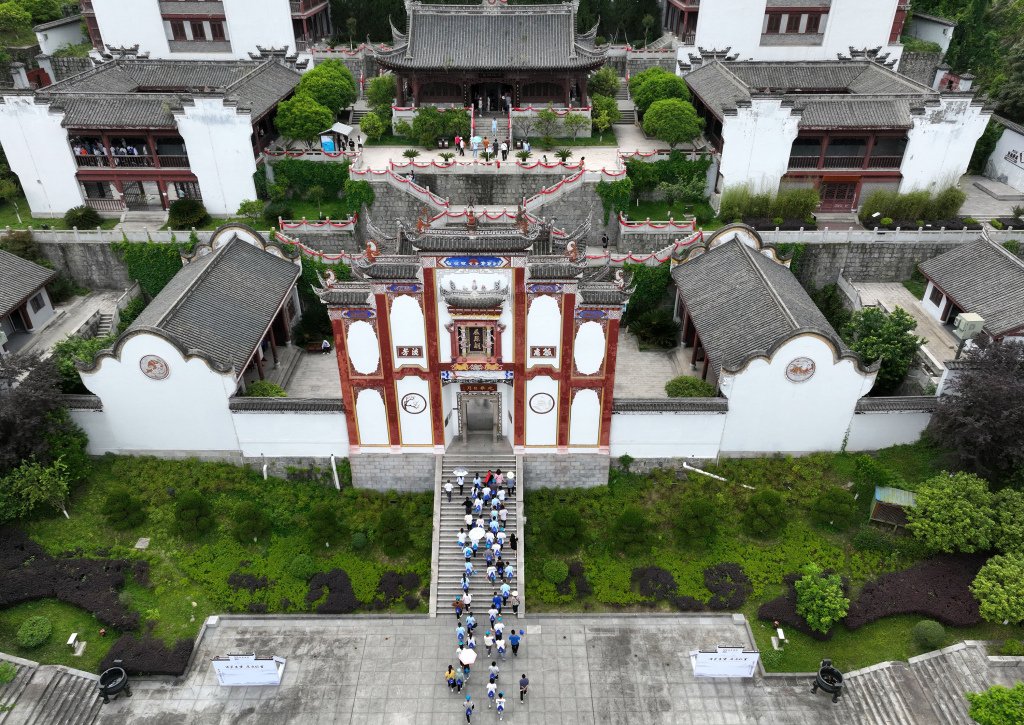Students in Zigui County, Hubei Province, China, located at the birthplace of the esteemed poet Qu Yuan, recently gathered to honor his life and legacy ahead of the annual Dragon Boat Festival. Qu Yuan, a significant historical figure, was an influential minister of the Chu state during China’s tumultuous Warring States Period, which spanned from 475 to 221 BC.
His fierce patriotism, however, met with a tragic end. Upon receiving news of the fall of his beloved Chu state, Qu Yuan was engulfed by despair. Overwhelmed by his profound sorrow and steadfast loyalty, he chose to end his own life by drowning himself in the Miluo River, marking an unforgettable incident in Chinese history.
In the aftermath of this heartbreaking event, a poignant legend was born. Moved by Qu Yuan’s sacrifice, local people rushed in their boats onto the Miluo River, desperate to recover his body. To prevent fish and other aquatic creatures from consuming his remains, they threw handfuls of rice into the river’s murky depths. This act of communal reverence and respect is said to have given birth to the customs associated with the Duanwu Festival.
Now, annually during the Dragon Boat Festival, people across China, and indeed the world, participate in dragon boat races, symbolizing the ancient attempts to save Qu Yuan. They also prepare and consume zongzi, which are dumplings made of sticky rice. This culinary tradition is a direct homage to the original act of throwing rice into the river, signifying a cultural continuity from ancient times to the present day.
Thus, students in Zigui County are not merely commemorating a historical figure; they are remembering an act of utmost loyalty and participating in a centuries-old ritual of collective remembrance and honor. This respect for the past underscores the enduring cultural impact of Qu Yuan and the significance of the Dragon Boat Festival in Chinese society today.
READ MORE:
